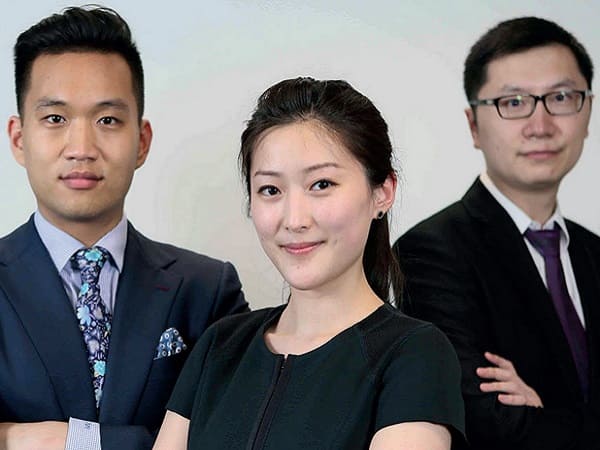You will learn:
1. Who can enter Russia on a work visa from far abroad?
2. How many purposes of entry to Russia on a work visa exist?
3. Which purpose of entry is used most frequently?
4. What categories of foreign specialists does Russian migration legislation divide into?
5. Pros and cons of issuing visas for different types of foreign workers entering Russia.
A company can hire any foreign citizen who is not prohibited from entering Russia. To work in Russia, a foreigner from a distant foreign country needs to obtain a work permit and a work visa. Russian legislation provides for 6 possible purposes of travel, which are specified in the work visa.
Usually, work visas are issued with the purpose of "employment". For such purposes, a single-entry visa can be issued for up to 3 months. This visa is issued so that the worker can enter Russia after obtaining a work permit. Then, documents must be submitted to the migration service to obtain a multiple-entry visa for up to 12 months (the total period is calculated from the moment of entry into Russia on a single-entry visa but not exceeding the duration of the employment contract).
Work visas with other purposes of travel are used less often. These include:
|
- Foreign employee - Teacher - Correspondent - Technical employee |
- For such trips, a single-entry visa valid for up to 3 months can be issued. Later, this visa can be replaced with a multiple-entry visa valid for up to 12 months (the total duration is calculated from the moment of entry into Russia on a single-entry visa). |
|
- Accompanying family member |
- A visa for the duration of the accompanying family member's visa may be issued for such a trip. |
There are two categories of foreign workers who can be employed in Russia from countries outside the former Soviet Union:
Highly Qualified Specialists (hereinafter "HQS") are foreign workers who have work experience or skills in the field for which they are hired by the company. Their salary must be at least 167,000 rubles per month (there are exceptions for workers in science, medicine, education, Skolkovo Innovation Center, Republic of Crimea, and the city of Sevastopol).
HQS are immediately issued a multiple-entry work visa for "employment." The visa is issued for the term of the employment contract with the foreigner, but not more than three years. Such a visa can be repeatedly extended for the term of the employment contract, but not more than three years for each extension.
Ordinary foreign workers are foreign workers who do not fall under the category of HQS, and whose salary is less than 167,000 rubles per month.
Such workers are issued a single-entry work visa for "employment." Initially, the visa is issued for a period of up to 3 months. Then, documents must be submitted to the migration service to extend the stay and obtain a multiple-entry visa for up to 12 months (the total duration is calculated from the moment of entry into Russia on a single-entry visa, but not exceeding the duration of the employment contract).
When choosing a category for a foreign worker that the company wishes to employ, it is necessary to weigh the pros and cons of both categories. The process of employing an HQS is simpler, faster, and less expensive compared to employing an ordinary worker. However, HQS have a high minimum salary requirement, and not every worker can be employed as an HQS. It is advisable for companies to confirm the high qualifications of HQS with some documents (e.g., a diploma in the relevant profession).
Detailed procedures for employing HQS and ordinary workers and their differences are further discussed below.
It is worth noting that if you comply with all the rules of employment of foreign citizens and have a complete set of documents, you can legally work in Russia without fear of deportation, fines or entry bans. Also, until June 15, 2021, foreign citizens do not need to extend their temporary stay documents in Russia or register their place of residence.
Summary:
1. Any foreign citizen from a distant country who is officially employed in Russia and is not prohibited from entering the country can enter Russia on a work visa.
2. There are a total of 6 purposes for entry into Russia on a work visa.
3. The most common purpose for entering Russia on a work visa is "employment".
4. There are two categories of foreign workers in Russia who can be hired from distant countries: (i) highly qualified specialists (HQS) and (ii) ordinary foreign workers.
5. Pros and cons of applying for entry into Russia for different categories of foreign workers:
|
Categories |
Advantages |
Disadvantages |
|
Highly qualified specialists |
1. The process of obtaining work permits is simpler, faster, and less expensive compared to ordinary workers. 2. There are no quotas on the number of foreign workers. |
1. High minimum salary. 2. Not every worker can be employed as a Highly Qualified Specialist, it is desirable to confirm high qualifications with some documents (such as a diploma). |
|
Ordinary foreign workers
|
1. Low minimum salary. 2. No need to confirm the employee's high qualifications. |
1. The process of employment is more complicated, lengthy, and costly for ordinary workers compared to HQS. 2. For certain positions, there are quotas set by the government for ordinary foreign workers, meaning only a limited number of such workers can be employed during the year. There are also positions for ordinary foreign workers where no quotas are set. |
При копировании материалов ссылка на сайт Lawspells (www.lawspells.com) обязательна.













